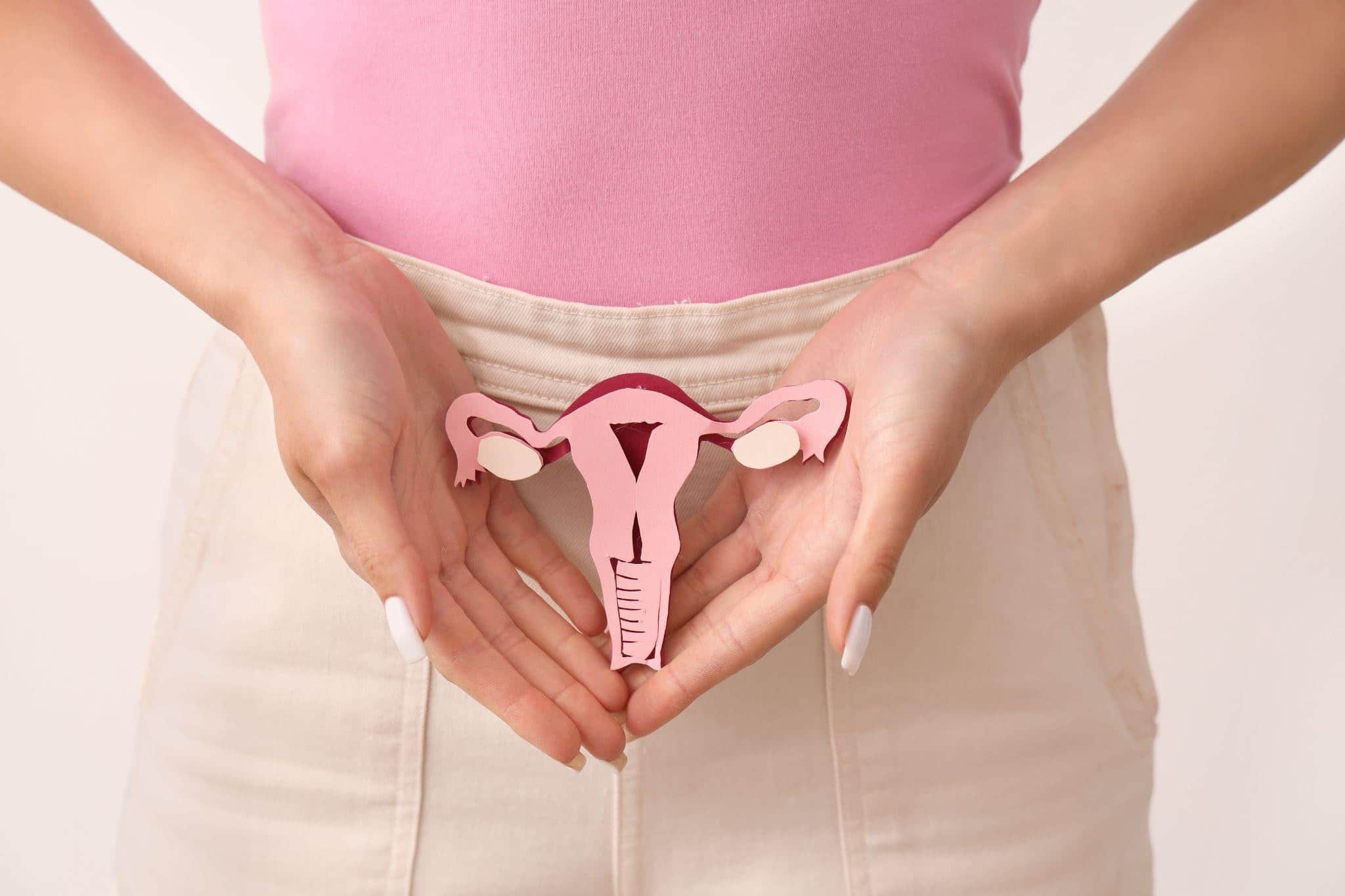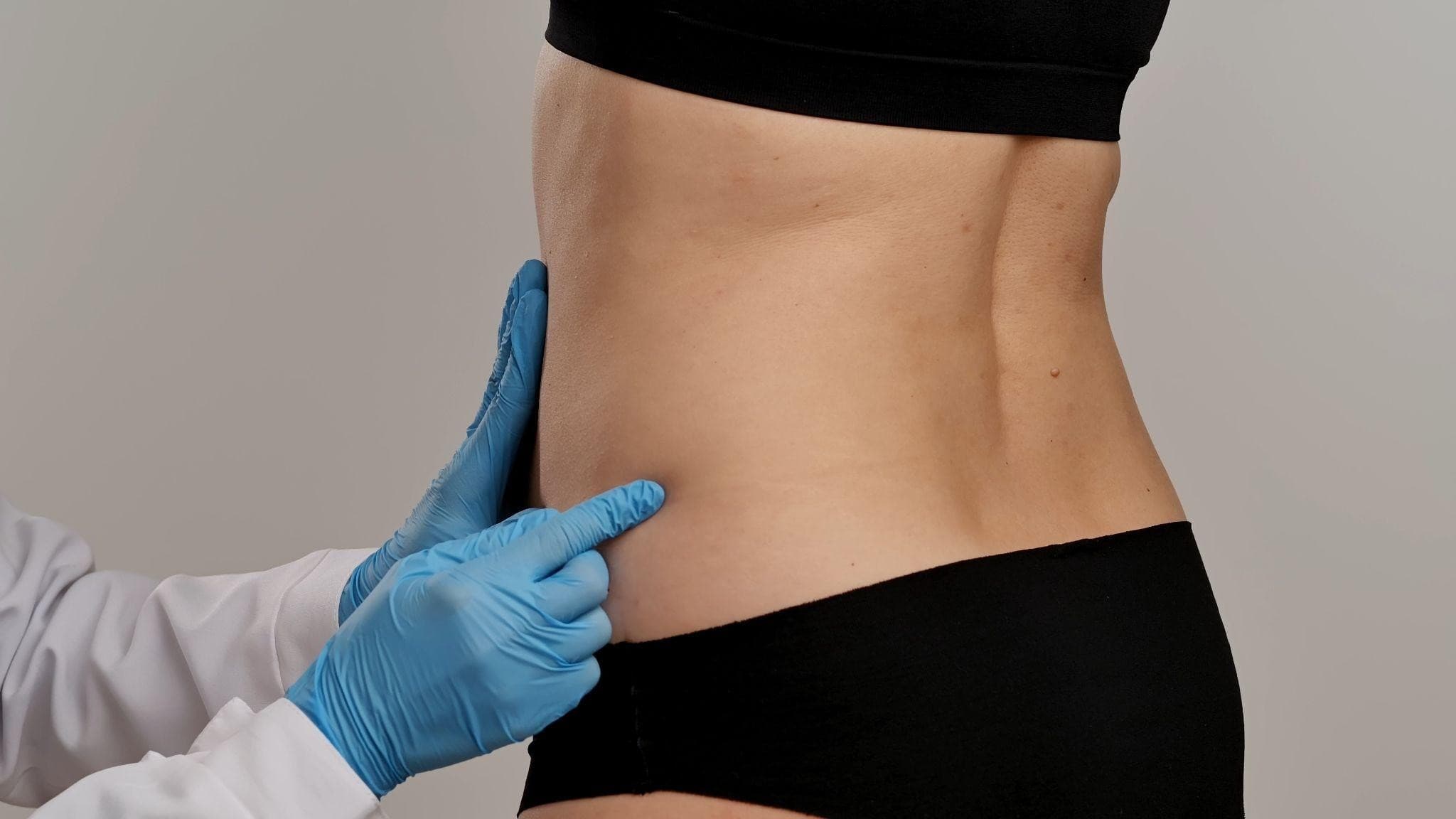Your Guide to Women’s Wellness: Reproductive Health and More
One thing that stays the same no matter what stage you are at in your life is that your body needs to be understood, cared for and supported. Here at Narangba Station Medical Centre, we know women’s health is more than just annual checks and medication prescriptions. It’s about being empowered, confident and in control of your body and health at every stage of your life.
Life in the 21st century has its challenges. Work, family and juggling everything that goes with modern life means women’s health is often one of the last things on our priority list. But understanding your body’s reproductive system, hormones, skin and your general health means you can take control and make informed decisions that are right for you, whether that’s looking at contraception options, understanding hormone changes or receiving specific menopause care.

If it’s been a while since you had your last women’s health check-up or you have been thinking about what is next for you when it comes to changes in your reproductive or hormone levels, there’s no better time than now to prioritise you.
Book a women’s health consultation with one of our team who will listen, guide and support you on your path to taking control of your health.
Want to know more? Here are the steps we go through with you when it comes to understanding and supporting your female reproductive and general health.
Table of Content
Women’s wellness goes beyond routine check-ups. It’s about understanding your body’s changes and knowing what’s right for you. From your first period to menopause and beyond, your needs change at each stage of your life. Empowering wellness comes from being informed, asking questions, and actively participating in your health not only when something is wrong, but to stay well every day.

Booking regular check-ups is one of the easiest and most effective things you can do to safeguard your long-term health. Many of us tend to see our GP when we’re unwell, but when it comes to preventive care, the best time to act is before there are any symptoms. Getting screening tests, health checks and lifestyle advice on a regular basis can catch more subtle changes in your health earlier when interventions or lifestyle modifications can have the greatest impact.
For instance, cervical screening can spot changes to the cells of the cervix before they have the chance to develop into cancer, and breast screening can detect cancers that are too small to be felt or seen. These tests are more than just boxes to tick off your healthcare list, they are opportunities to take stock and take back control of your health. The same is true for checks on blood pressure, cholesterol and hormones that might identify issues before they affect your wellbeing.
Regular appointments also mean you get to know and build trust with your GP. Someone who knows your health history, is non-judgmental and keeps an eye on any changes over time. This continuity of care means you don’t have to start from square one each time a new issue arises. It’s about making your healthcare journey personal, preventive and put you at the centre.
Your reproductive health involves the main systems and processes that are key to your fertility, hormonal balance and sexual health over the course of your life. Topics to be aware of include your menstrual cycle, hormonal fluctuations, fertility planning, contraception and screening for conditions like polycystic ovary syndrome (PCOS) or endometriosis. It also involves your sexual health from using protection to prevent sexually transmitted infections (STIs) to experiencing sexual function and comfort in intimate relationships.

When you see your GP there are some things to remember to mention to make sure your reproductive health is in check. These include menstrual problems, irregularities, abnormal bleeding and pain, changes in libido and fertility planning. You may also need to talk about contraception and screening including cervical smears and STD testing.
Blood tests may also be recommended to check your hormones or to rule out issues with your thyroid, vitamins and metabolism, as all of these can impact on your reproductive health. Mentioning these concerns and discussing them with your GP will allow them to direct you to appropriate care and prevent what might be minor issues from developing into more serious problems in the long run.
Navigating Contraceptive Options
Deciding on the “best” method of contraception is an important aspect of reproductive health. There is no one-size-fits-all answer, as the ideal method will depend on your lifestyle, health needs, and personal preferences. Contraception can come in the form of hormonal birth control (pill, patch, implant), barrier methods (condoms), intrauterine devices (IUDs), fertility awareness or sterilisation.
The effectiveness of these methods varies, as do their associated benefits and potential side effects. It’s important to be informed of the different options available, so you can make the decision that best suits you with your GP.
Your GP will consider your medical history, age, menstrual cycle, hormone levels and future family planning goals when advising on contraception. They can help you weigh the pros and cons of different methods, taking into account factors such as convenience, hormone exposure and side effect profiles.
What Is Implanon and How Does It Work?
One of the long-acting hormonal options your GP may discuss is Implanon. Implanon is a long-acting, reversible contraceptive implant that contains a hormone called etonogestrel (a type of progestin). It is a small, flexible rod that is inserted under the skin of the upper arm by a healthcare provider. The implant releases a low, steady dose of the hormone into the bloodstream.
The hormone in Implanon works in three ways to prevent pregnancy:
- Implanon stops the ovary from releasing an egg each month. Without an egg being released, fertilisation is not possible.
- The hormone thickens the mucus produced by the cervix, making it harder for sperm to swim through and reach the egg.
- Implanon causes changes in the lining of the uterus, which makes it less suitable for a fertilised egg to implant and develop.
These actions of the hormone make Implanon a highly effective contraceptive, with more than 99% effectiveness when used correctly. The implant can be left in place for up to three years, and can be removed or replaced at any time.
Implanon Insertion: What to Expect During the Procedure
Implanon insertion is a straightforward and quick procedure. The implant is a small, flexible rod, which is usually inserted just under the skin in the upper arm. Before insertion, your healthcare provider will review your medical history, answer any questions, and ensure you are aware of all the benefits and potential side effects.
The insertion site will be cleaned and a local anaesthetic will be used to numb the area, so during the procedure you may feel slight pressure or a brief pinching sensation. The implant is then carefully inserted under the skin using a special applicator. The procedure usually takes just a few minutes and you can generally return to your normal activities straight away.
Your GP will give you advice about how to look after the area and what to expect in terms of minor bruising or soreness. They will also discuss when a follow-up visit is needed. Most people find the procedure is very straightforward and well-tolerated. Once inserted, Implanon provides long-lasting, highly effective contraception for up to three years.
How Much Does Implanon Cost in Australia?
At Narangba Station Medical Centre the cost of Implanon insertion is $100.00 (does not include cost of implant). If you have a Medicare card, you can claim a rebate of $39.20. The cost of Implanon removal is $140.00 (includes the cost of implant) with a Medicare rebate of $66.85. (Does not include any prescription costs).
We also offer a service for patients who would like to have their current Implanon removed and another inserted immediately (combination removal and reinsertion) at a total cost of $240 with a Medicare rebate of $106.05.
If you are an implant user with another practice, please obtain a prescription for the implant from your GP, and bring your implant with you. We can also provide a prescription for you (which will be subject to a separate standard consultation fee).
Note: contraceptive treatment is not normally covered by private health insurance. However you may still be eligible for some cover, so it is worth asking your provider.
Is Implanon Right for You?
Implanon is a suitable contraceptive method for many women, but it’s not for everyone. It’s important to consider your health, lifestyle, and reproductive goals when deciding if Implanon is right for you. At Narangba Station Medical Centre, our qualified doctors can guide you through the benefits and considerations, discuss your medical history and concerns, and help you decide if Implanon is a good fit for you.
You can expect us to explain how the implant works, potential side effects, and how it compares to other methods of contraception. Our patient-centred approach will help you make an informed decision with confidence, knowing your reproductive health is in safe hands.
Women’s health needs evolve over the course of their lives. From the menstrual cycle settling down in the teens and early 20s and hormone fluctuations, which may affect mood, energy levels, and overall well-being, to changes that might come in the 30s and early 40s – all these stages are special and bring their own physical and hormonal alterations.

In the 30s and early 40s, women may start to notice subtle changes in their hormone levels, which can have an impact on various aspects of their health, including sleep patterns, metabolism, and skin. During this stage, the importance of preventive care becomes increasingly significant—particularly when it comes to cervical and breast cancer screening. We also provide the HPV vaccine as part of our cervical health services, helping reduce the risk of HPV-related cervical abnormalities and supporting long-term reproductive health.
Perimenopause, which is the transitional period before menopause, typically occurs in the mid-40s and is characterised by irregular periods, hot flashes, and other hormonal changes. By the early 50s, most women will have reached menopause, which is defined as the end of natural menstrual cycles. After menopause, it is important to focus on maintaining bone and heart health, as well as continued cancer screening and overall physical and mental well-being.
Knowing and understanding the changes a woman’s body goes through in different stages of life, as well as recognising which changes are ‘normal’ and which are not, can help her plan regular visits to the healthcare provider and schedule visits to the right specialist if necessary. It can also help a woman make the necessary lifestyle changes for long-term health and well-being.
Managing Hormonal Changes and Menopause
Perimenopause and menopause are primarily caused by the natural and gradual decline in the function of the ovaries and the production of hormones, particularly estrogen and progesterone. As women age, the number of follicles in the ovaries decreases, leading to a decline in estrogen levels, which results in irregular periods and eventually cessation of menses.
Estrogen and progesterone are important for the menstrual cycle and are involved in multiple physiological processes. The declining levels of these hormones during perimenopause and menopause result in irregular menstrual cycles, hot flashes, night sweats, mood changes, and cognitive disturbances.
As estrogen levels decline, the lack of negative feedback on the hypothalamus and pituitary gland causes an increase in the production of follicle-stimulating hormone (FSH) and luteinizing hormone (LH). The rise in FSH and LH levels can further disrupt the menstrual cycle and lead to menopausal symptoms.
In addition to estrogen and progesterone, the ovaries produce other hormones and chemical messengers, including dehydroepiandrosterone (DHEA), testosterone, inhibin, and activin. The decline in ovarian function during perimenopause and menopause can also lead to changes in the levels of these hormones.
Lower levels of DHEA and testosterone may contribute to the loss of muscle mass and strength, as well as changes in body composition. Inhibin and activin are involved in the regulation of the menstrual cycle and their decline can contribute to the irregular cycles and cessation of menses that occur during perimenopause and menopause.
Finding the Right Menopause Specialist in Brisbane
A common challenge in finding the right practitioner is identifying a clinician experienced in not just preventive screenings and symptom management, but one who understands the nuances of menopausal health as a comprehensive care continuum and can offer personalised care plans tailored to each woman’s unique medical history and lifestyle.
Local support networks that provide clinics with long-term follow-up and integrated care solutions for bone health, heart health, and mental well-being can also greatly simplify this journey.
At Narangba Station Medical Centre, our team provides specialist menopause services. We focus on comprehensive evaluations, monitoring of key health markers, and guidance for managing common symptoms including hot flashes, sleep disturbances, and bone or cardiovascular changes. Our approach is rooted in the science of menopause, and our targeted, local care supports women at every stage of this natural life transition.
Women's health is not just about fertility, it's about overall physical, mental, and emotional well-being at every stage of life. You can help support your body with balanced nutrition, regular physical activity, sufficient sleep, and stress management. These steps will increase your energy, help you bounce back more quickly, and may also improve long-term health outcomes.

The Role of Mental Health in Women’s Wellness
Hormones are a massive contributor to mood. During puberty and pregnancy, and premenstrually during menstrual cycles (when estrogen and progesterone fluctuate), there is an alteration to brain chemicals. Serotonin, for example, can cause sharp mood changes, inexplicable anxiety, and just a lot of ‘messy’ feelings during adolescence.
In adulthood, life has its own troubles. Between juggling work projects that are all due on Monday, keeping the house running smoothly, and perhaps children, there is always so much to do. Add those stressors to changing hormones, and suddenly you find your sleep erratic, energy low, and patience thinning. Our thoughts around stressors, coping mechanisms, and social support all impact our mental health in tangible ways.
In older adults, life changes again. Drop-offs in hormones and the changing stages of life can cause fuzzy memories and irregular moods. Awareness and self-efficacy about a little psychology (why you may be responding to certain things the way you do, what coping mechanisms work for you, etc.) can assist you in gracefully navigating the next stage of life without being thrown off too badly.
Nutrition, Movement, and Preventive Health Checks
Achieving and maintaining overall wellness is a multifaceted endeavour that requires a holistic approach to lifestyle. By partnering with a nutritionist for healthy eating habits, every woman at any age can establish a meal plan customised for their lifestyle and goals. Balanced nutrition provides energy, supports hormonal health and bone, cardiovascular and metabolic health, and sets the foundation for long-term wellness.
Medically supervised weight loss may be another area of focus, particularly for women who are ready to take on weight loss safely and effectively. These programs, typically guided by an individual’s specific health profile and risk factors, are evidence-based and highly personalised for sustainable results with minimal health risks.
Finally, routine preventive health checks play a critical role in women’s health and allow for the early detection and treatment of any concerns, such as blood pressure, cholesterol, diabetes and cancers.
Caring for Your Skin Through Life Stages
From adolescence to menopause, your skin undergoes different changes that influence how it ages and the challenges it may face. If you live in Brisbane, it’s essential to understand how to best protect your skin from the sun’s damaging effects, as our location in Queensland means we experience high levels of UV radiation throughout the year. Regular skin checks can help you detect skin cancer early, even if you don’t have visible spots or moles.
While everyone should protect their skin from the sun’s rays, women’s skin can be more sensitive or at higher risk due to certain conditions or natural changes. Melasma can affect pigmentation, making skin tone darker. It is often triggered by pregnancy and hormonal contraception but can be exacerbated by UV rays.
Hormonal fluctuations that come with perimenopause and menopause can make skin thinner and more sensitive, so you may be more likely to sunburn or experience long-term damage. Autoimmune and photosensitive conditions, like lupus, can cause sun exposure to trigger a flare. Regardless of your age or stage in life, you can support your skin’s health by wearing broad-spectrum SPF every day, and using hats, protective clothing and shade.
Throughout our work supporting women’s health, we often get asked similar questions about reproductive wellness, hormonal changes, lifestyle, and preventive care. To make it easier to find the information you need, we’ve compiled answers to some of the most common questions women of all ages ask.
Understanding when and how to seek medical advice for women’s health concerns can make all the difference in managing your wellbeing. While some aspects of women’s health, such as regular check-ups or managing contraception, may be straightforward, other questions related to reproductive health, menopause or overall wellness may warrant a conversation with your GP or healthcare professional.

If you’re wondering how to seek help for women’s health, one of the first steps is considering how to find the right clinic for you. Look for a clinic with a team that specialises in women’s health and offers a full range of services through different stages of life. They should have experience in providing continuity of care so you can build a long-term relationship with your GP or healthcare provider.
Here at Narangba Station Medical Centre, our team of GPs is here to give you the time you need to discuss and guide you through health-related questions that matter to you. We provide comprehensive consultations, preventive screenings, and ongoing support for women to make informed decisions about their health.
From reproductive health assessments to menopause care and lifestyle advice, we ensure you can access quality GP services for women in one convenient location.
Women’s health is a lifelong journey that involves reproductive wellness, hormonal changes, mental health, lifestyle and prevention. A holistic approach to your health and wellbeing means that all areas of your health are taken care of, so you can feel confident, resilient and empowered at every stage of life.
Don’t wait, prioritise your health today. Contact us now to find out more about our services or book an appointment now to see one of our experienced GPs.
Your journey to complete, proactive care begins here.
Contact & Bookings
To make an appointment, please call reception or use our online booking system via the button below. You can also visit our contact page to see further details about our location and directions.
Bookings are available from as early as 7AM on weekdays and Saturday. We are also open Sunday afternoon and late evening on Tuesday and Thursday until 8:30PM.
Can't find us? - We are situated across the road from Narangba Train Station next to the Narangba Village shopping complex. Look for signs for Narangba Health Centre and IGA.
